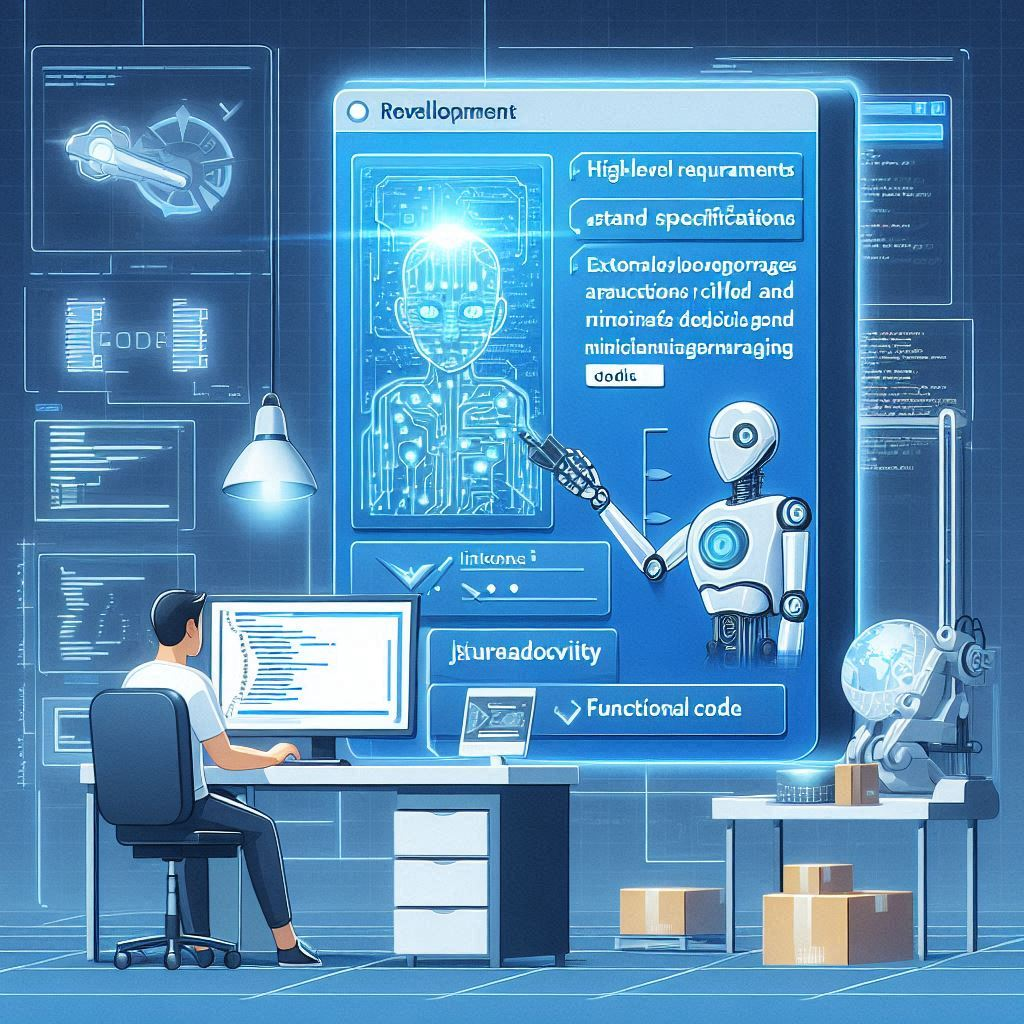The software development landscape has changed dramatically in recent years, owing to the fast evolution of artificial intelligence (AI) technologies. This article investigates the current status and future possibilities of AI in the world of coding, focussing on how AI is transforming the software development process, the problems it poses, and the skills developers will need to succeed in this new era.
The Impact of AI on Coding Practices
AI-powered coding tools have emerged as major changers in the software development space. These technologies, which use Large language models and machine learning techniques, may generate code snippets, complete partially written code, and even create full functions based on natural language descriptions. Industry experts point out that existing AI technologies can create code with up to 80% correctness, considerably speeding up the development process.
However, it is important to emphasise that human interaction is still necessary, particularly for the remaining 20%, which frequently requires sophisticated logic, edge situations, and integration with current systems. AI can make writing code easier, but it still needs human supervision to manage and maintain historical code, find and debug flaws, and make complicated judgements.
Emerging AI-Powered Coding Solutions
Several creative firms are pushing the frontiers of AI in software development. These organisations are creating tools to automate various stages of the software development lifecycle, from basic code creation to testing and deployment.
Some solutions rely on artificial intelligence to automatically find and resolve code errors and security vulnerabilities. These technologies interface with common development environments and serve as centralised platforms for code governance, allowing businesses to enforce specific best practices and regulations throughout their entire codebase.
Other AI-powered systems may create complete code for web and mobile applications, including database design and deployment scripts. These platforms attempt to make app creation more accessible by allowing non-coders to create fully working applications without writing a single line of code.
Furthermore, AI agents for automating software testing are gaining popularity. These tools may construct complete test cases based on the API documentation, possibly saving developers significant time and effort in the quality assurance process.
Challenges and Limitations
While the potential for AI in coding is enormous, some obstacles and constraints must be addressed:
- Code Quality and Security: Maintaining the quality and security of AI-generated code is a major challenge. Tools that can create code while adhering to best practices and security requirements are needed.
- Context and Customisation: AI tools must be able to recognise the unique context of each project and follow company-specific coding standards and procedures.
- Overreliance on AI: There is a concern that developers may become too reliant on AI technologies, perhaps resulting in a loss of essential coding abilities.
- Integration with Existing Processes: Integrating AI technologies into established development workflows and obtaining team buy-in can be difficult.
- Accuracy and Hallucinations: AI models can occasionally generate inaccurate or illogical code, referred to as “hallucinations.” Developers must be careful and validate AI-generated code.
Future Trends in AI-Powered Coding
Several trends are likely to shape the future of AI in software development:
- Increased Automation: AI is predicted to automate more components of the software development lifecycle, including requirement collecting, deployment, and maintenance.
- Improved Code Governance: AI technologies will play a bigger role in enforcing code standards, detecting possible vulnerabilities, and assuring security and regulatory compliance.
- AI-powered no-code and low-code platforms: AI-powered no-code and low-code platforms will advance, enabling non-technical people to construct complex apps.
- Improved Testing and Quality Assurance: AI will continue to improve automated testing capabilities, possibly saving time and costs for QA operations.
- Personalised Development Environments: AI assistants might emerge to give personalised coding services based on a developer’s style and preferences.
Skills for the AI-Augmented Developer
As AI continues to alter the coding landscape, developers must modify their skill sets to stay relevant. In the AI future, developers will need to focus on many essential aspects.
- Strong Foundation in Programming Fundamentals: Despite AI aid, a thorough grasp of programming ideas, data structures, and algorithms is still required.
- Problem-Solving and Critical Thinking: The capacity to dissect difficult issues and devise effective solutions will be more vital than ever.
- AI Literacy: Developers should be aware of how AI coding tools function, their limits, and how to effectively interact with them.
- Code Review and Quality Assurance: The capacity to critically review and improve AI-generated code will be extremely useful.
- Continuous Learning: Developments must commit to continuous learning and adaptability as AI technologies advance fast.
- Interdisciplinary Knowledge: Understanding fields other than pure coding, such as user experience, data science, and cloud architecture, will become increasingly vital.
Take Aways:
The introduction of AI-powered coding tools heralds a new age of software development, promising enhanced efficiency, higher code quality, and new avenues for creativity. However, it also introduces issues that the industry must solve, ranging from assuring the security and dependability of AI-generated code to rethinking the role of human developers in an AI-augmented environment.
AI is not intended to replace developers, but rather to enhance them. By viewing AI as a collaborative tool and focusing on creating skills that complement AI capabilities, developers can place themselves at the forefront of this exciting shift in the software industry.
The path to completely AI-integrated software development is only beginning, and the future years are expected to deliver even more innovative advancements. As we move forward, it will be critical for developers, businesses, and educational institutions to keep current on these developments and react accordingly.
Artificial intelligence can significantly alter software development. Early adopters of AI-powered coding tools report shorter development times and lower costs, with some estimations indicating a 65-75% decrease in key areas. These technologies also promise to increase code quality and security, speed up testing and bug identification, and democratize app development with powerful no-code/low-code platforms.
However, realizing these benefits would necessitate resolving critical problems, such as the correctness of AI-generated code and ideas, the requirement for suitable documentation for AI tools to work properly, and striking the appropriate balance between automation and human participation in complicated settings.
As AI evolves and becomes increasingly integrated into the software development process, it will surely transform developers’ roles and the nature of coding itself. The future of coding is now, and AI powers it. Those who can adapt to this new paradigm, using AI as a powerful tool while retaining basic programming and problem-solving abilities, will be well-positioned to drive the next wave of software innovation.
Contact us at open-innovator@quotients.com to schedule a consultation and explore the transformative potential of this innovative technology.






